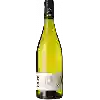Top 100 sweet wines of Vin de Pays - Page 3
Discover the top 100 best sweet wines of Vin de Pays as well as the best winemakers in the region. Explore the varietals of the sweet wines that are popular of Vin de Pays and the best vintages to taste in this region.



































































































